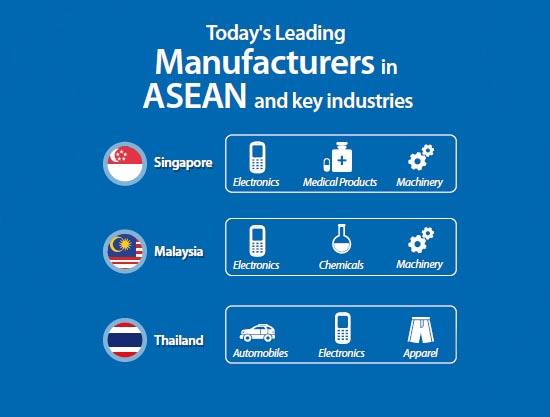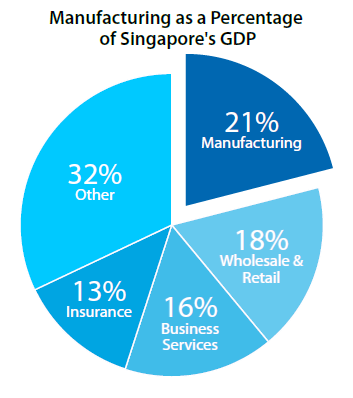By Matthew Zito, Dezan Shira & Associates

Singapore
Located at the heart of Southeast Asia, this successful and highly developed free-market economy offers a host of opportunities to investors. The cultural melting pot that is Singapore has been referred to as one of the most business-friendly and competitive economies in the world, and for good reason.
As the commercial hub of ASEAN, Singapore is characterized by its open, efficient, and corruption-free government, low-interest rates, state-of-the-art infrastructure, significant investment incentives, and highly-educated workforce. These reasons and more led to Singapore ranking first on the World Bank’s “Ease of Doing Business Index” for nine consecutive years (2006-2014).
Contrary to the belief of many, Singapore is not only home to thriving finance, business, and retail sectors, but is also an important manufacturing hub. Singapore’s diverse economy depends heavily on exports, and manufacturing accounts for approximately 21 percent of the country’s GDP—a percentage much higher than in other advanced economies such as the United Kingdom, Canada, or the United States. In comparison, wholesale and retail, business services, and finance and insurance—all sectors more strongly associated with Singapore— constitute 18 percent, 16 percent, and 13 percent of GDP, respectively.
Singapore’s specialized industries include chemicals, which made up 33.4 percent of total manufacturing output in 2013, electronics (27.8 percent), precision engineering (11.4 percent), transport engineering (11.1 percent), biomedical manufacturing (8.2 percent), and general manufacturing (8.1 percent).

However, despite all of the positive aspects of Singapore’s business environment, there are some concerns that the country will become less competitive in coming years as a result of increasing business costs—which are already significantly higher than those of other ASEAN nations. The average wage of a worker in Singapore’s manufacturing sector was US$3,375 per month in Q3 2013 versus US$350 in Thailand during the same period. Furthermore, between Q3 2009 and Q1 2013, business costs in the manufacturing sector rose by 19 percent cumulatively.


